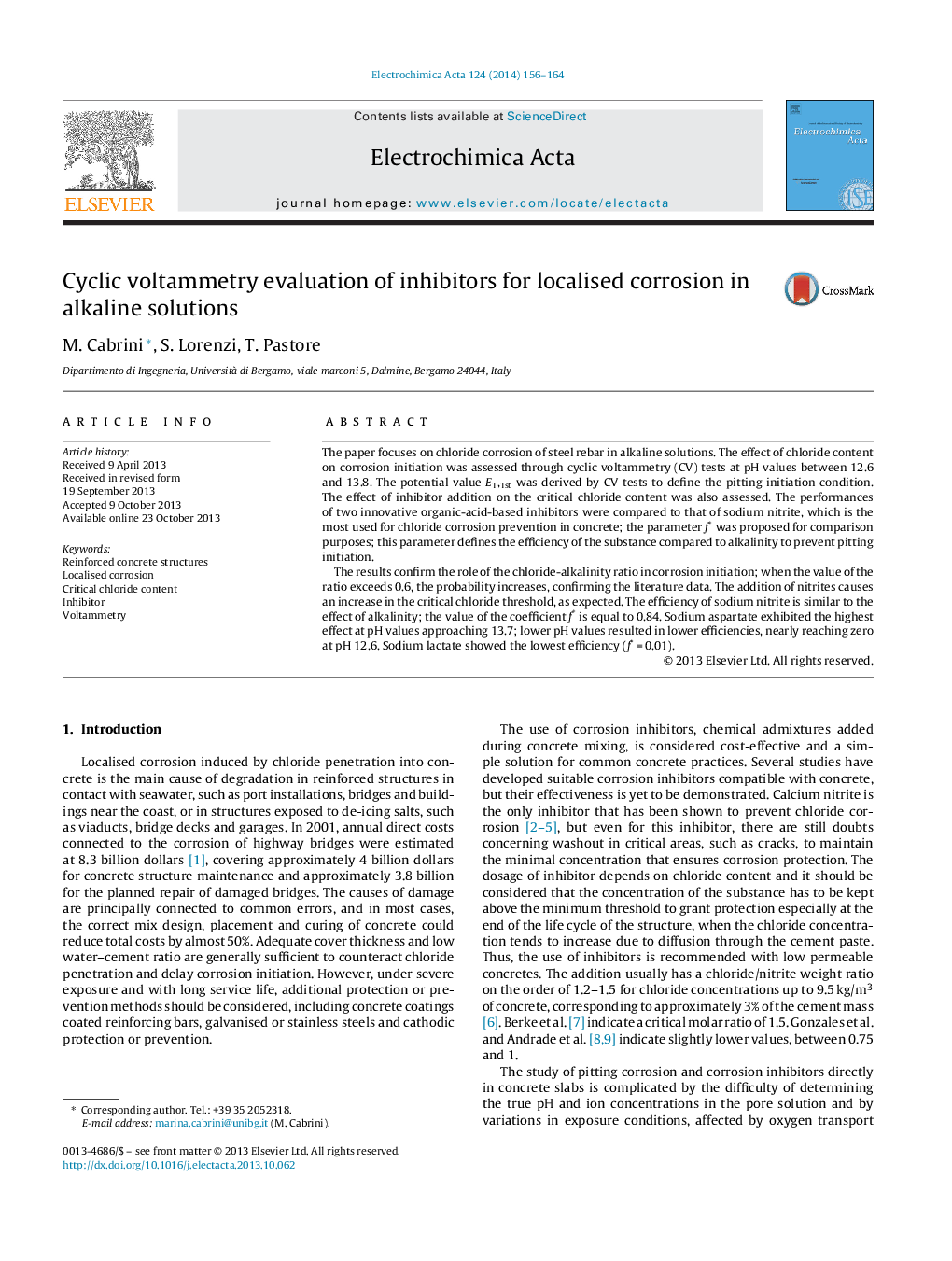| Article ID | Journal | Published Year | Pages | File Type |
|---|---|---|---|---|
| 186350 | Electrochimica Acta | 2014 | 9 Pages |
The paper focuses on chloride corrosion of steel rebar in alkaline solutions. The effect of chloride content on corrosion initiation was assessed through cyclic voltammetry (CV) tests at pH values between 12.6 and 13.8. The potential value E1,1st was derived by CV tests to define the pitting initiation condition. The effect of inhibitor addition on the critical chloride content was also assessed. The performances of two innovative organic-acid-based inhibitors were compared to that of sodium nitrite, which is the most used for chloride corrosion prevention in concrete; the parameter f* was proposed for comparison purposes; this parameter defines the efficiency of the substance compared to alkalinity to prevent pitting initiation.The results confirm the role of the chloride-alkalinity ratio in corrosion initiation; when the value of the ratio exceeds 0.6, the probability increases, confirming the literature data. The addition of nitrites causes an increase in the critical chloride threshold, as expected. The efficiency of sodium nitrite is similar to the effect of alkalinity; the value of the coefficient f* is equal to 0.84. Sodium aspartate exhibited the highest effect at pH values approaching 13.7; lower pH values resulted in lower efficiencies, nearly reaching zero at pH 12.6. Sodium lactate showed the lowest efficiency (f* = 0.01).
